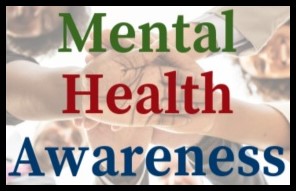 We continue our Mental Health Awareness series with a look at borderline personality disorder, an often misunderstood and misdiagnosed condition.
We continue our Mental Health Awareness series with a look at borderline personality disorder, an often misunderstood and misdiagnosed condition.
According to the National Alliance on Mental Illness, opens a new window,"Borderline Personality Disorder (BPD) is a condition characterized by difficulties regulating emotion. This means that people who experience BPD feel emotions intensely and for extended periods of time, and it is harder for them to return to a stable baseline after an emotionally triggering event."
Those of us who live with borderline personality disorder tend to have difficulty perceiving ourselves and others in a rational way. These difficulties can cause instability in many aspects of our lives, including our mood, behavior, our ability to function, self-image, and - perhaps most significantly - our relationships.
People who have BPD may experience some or all of the following:
- fear of being alone, resulting in desperate efforts to avoid abandonment (whether real or imagined)
- intense yet unstable relationships, in which feelings alternate between love and hate
- a distorted sense of self or feelings of uncertainty about one's role in the world
- impulsive/reckless behavior - unsafe sex, drug misuse, reckless driving, spending sprees, etc.
- recurring self-injury (cutting, burning, etc.) and/or suicide threats or attempts
- intense episodes of depression, anger, and anxiety
- frequently recurring feelings of emptiness
- intense/uncontrollable anger that nearly always leads to intense guilt/shame
-
intermittent feelings of dissociation (feeling disconnected from your own sensory experience, sense of self, or personal history; a sense of alienation or unreality)
The diagnostic label "borderline personality disorder" is not an ideal term, but it is widely used throughout the U.S. and the rest of the world. The word "borderline, opens a new window" fails to describe the symptoms and experiences of people who have BPD. The term first arose when psychiatrists began to categorize mental health disorders. They wanted to create a category for people whose personality and behavior was neither neurotic nor psychotic, but somewhere on the border in between, opens a new window. Alternative terms include "emotional dysregulation disorder, opens a new window" (sometimes used in the U.S. as a synonym for borderline personality disorder) and "emotionally unstable personality syndrome, opens a new window" ("emotionellt instabilt personlighetssyndrom," frequently used in Sweden).
How prevalent is borderline personality disorder? According to NAMI, opens a new window, "it's estimated that 1.6% of the adult U.S. population has BPD, but that number may be as high as 5.9%. Nearly 75% of people diagnosed with BPD are women. Recent research suggests that men may be equally affected by BPD but are commonly misdiagnosed with PTSD or depression."
One kind of psychotherapy that has proved to be helpful for many individuals is cognitive behavioral therapy, opens a new window (CBT). The purpose of CBT is to help people recognize and alter some of the beliefs that inform their interpretations of their own experiences. Dialectical behavioral therapy, opens a new window (DBT) is a specific type of cognitive behavioral therapy, developed by Dr. Marsha Linehan, opens a new window specifically to help people with borderline personality disorder. Its purpose is to encourage people to focus on self-acceptance and mindfulness, opens a new window, and to help people be more aware of their emotional state so they can better manage stress levels.
Please note: the information provided in this blog post is intended for informational purposes only and is not meant to take the place of a consultation with a mental healthcare professional.
If you or someone you know needs immediate help, especially if you're having thoughts of suicide, please contact one of these hotlines:
- NAMI, opens a new window Helpline at 1-800-950-6264, available Monday - Friday, 9 am - 5 pm CST
- National Suicide Prevention Lifeline, opens a new window at 1-800-273-8255 or text "HOME" to 741741 or visit this site, opens a new window for online chat help
- SAMHSA Disaster Distress Helpline, opens a new window at 1-800-985-5990 or text "TalkWithUs" to 66746
- IMALIVE, opens a new window: If you are in crisis or considering suicide, click the "Chat Now" button to talk with a volunteer from IMALIVE.
- If you or someone you know is currently in danger, please call 911 immediately.
We have created a list of St. Tammany Parish Library resources and external websites that have additional information about borderline personality disorder. If you need help getting to any of the items on the list, including titles from Hoopla, opens a new window, Cloud Library, opens a new window, OverDrive, opens a new window, or Libby, opens a new window, please contact your nearest St. Tammany Parish Library reference librarian, opens a new window.



Add a comment to: Mental Health Awareness: Borderline Personality Disorder (BPD)